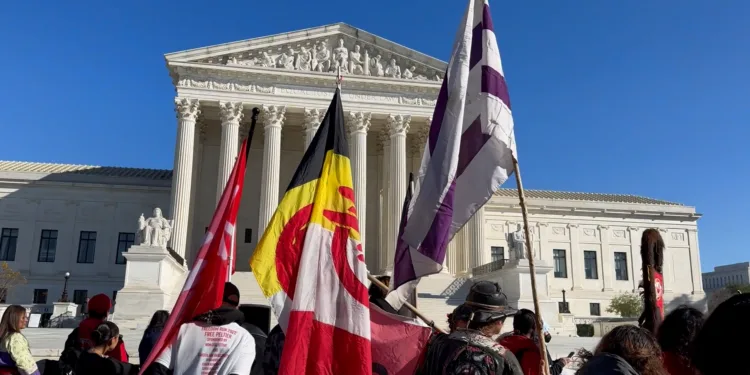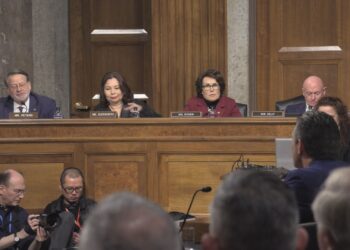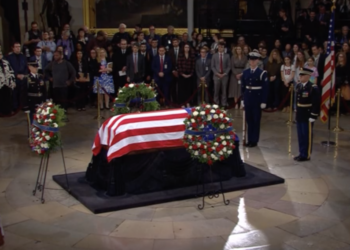WASHINGTON, D.C. – The Supreme Court upheld a crucial law that aims to keep Native American children with their extended family or members of their tribe. Tribal nations across the US are praising the Court’s decision, saying the law rights the wrongs of extreme historical injustices committed against Native children and families.
By a seven to two vote, the Supreme Court ruled to keep provisions of the Indian Child Welfare Act (ICWA). It’s a law that was passed in the late 70s after a congressional investigation found that in the span of a couple of decades, Native children had been removed from their homes, some forcibly, and placed with non-Indian families and institutions with no ties to the tribes.
Congress created the ICWA to establish preferences of Native children when they are adopted or put into foster care to keep the kids with their extended family, another family in the tribe or a family from another tribe.
In the recent Supreme Court case, those preferences were challenged by a non-Native family. They argued in part that the adoption preferences were an unconstitutional racial classification. But tribes and the Biden administration argued that tribal membership is a political, not racial, classification.
Back in November when the Court heard arguments in the case, people in favor of keeping ICWA were worried the ruling could do more than impact adoptions and children in foster care.
“There is actually potentially very damaging to 200 years of legal precedent a direct attack on tribal sovereignty,” said Sarah Kastelic, the executive director of National Indian Child Welfare Association.
In the Court’s decision, it affirmed congressional authority to pass the ICWA and rejected that it infringed state authority. The ruling is seen as a major victory for tribes. Choctaw Nation Chief Gary Batton said in part: congress passed the ICWA to right the extreme historical injustices committed against native children and their families. The law remains a critical part of protecting Native American heritage and tribal sovereignty.”
The White House said in part: the law was passed to protect the future of tribal nations and promote the best interests of native children, and it does just that.










